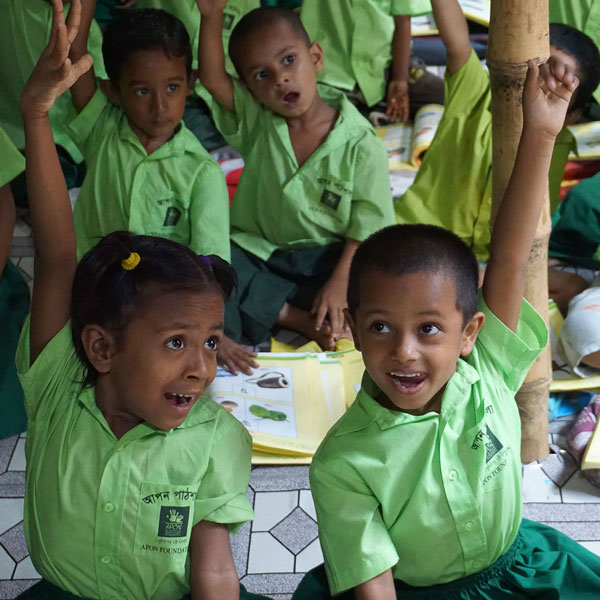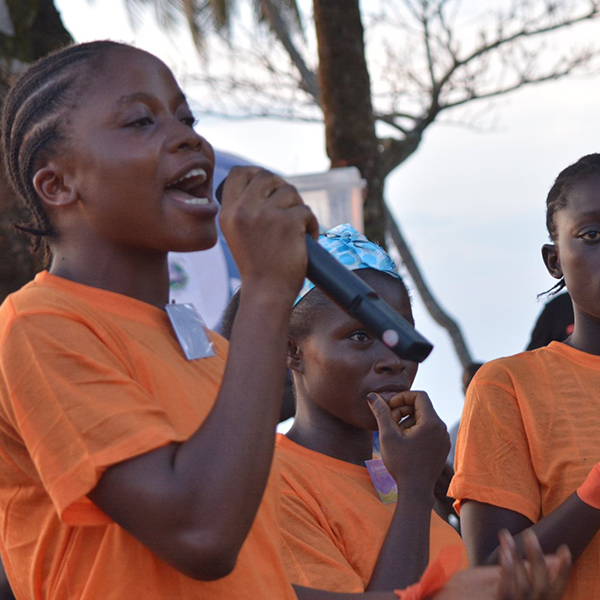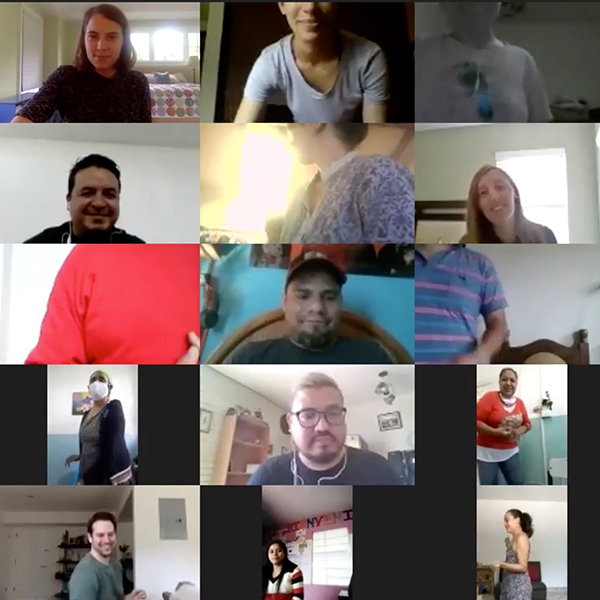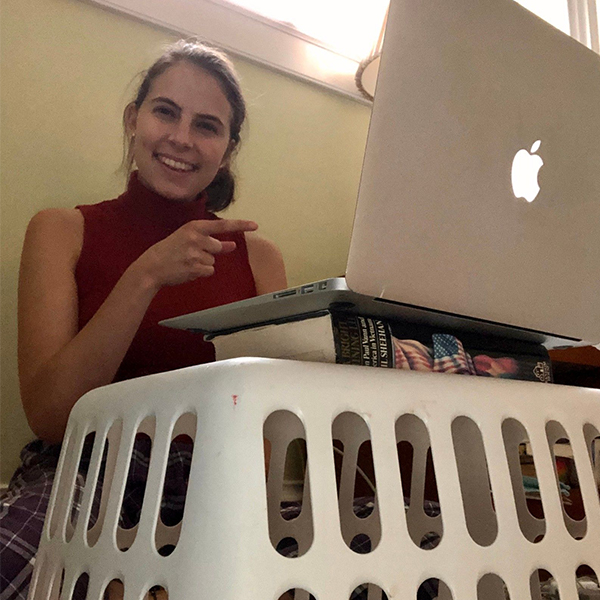This article was originally published on Conveners.org.
A virtual retreat doesn’t have to be boring. Here are some activities GFC’s Programs team used to spark creativity, connections, and new ideas.
Ears, elbows, feet, and other body parts peeked out of the Zoom squares on our screen. It was not an embarrassing camera fail but the start of Global Fund for Children’s 2020 virtual retreat for our Programs team, during which we introduced ourselves through various limbs and parts. After our first in person retreat in 2019, we looked forward to convening our team members – based around the world from Guatemala to Liberia to India – in Washington, DC. As we gradually shifted our in person interactions with our community-based partners to creative virtual ones after the pandemic started, we felt game enough to connect our team through Zoom.
A small group of us representing different regions came together as the core retreat planning team. As we considered why we wanted to convene people and what we hoped to accomplish from this experience, one thing was clear: We did not want just another meeting. We agreed to craft an experience for our team to “reflect, connect, and dream.”
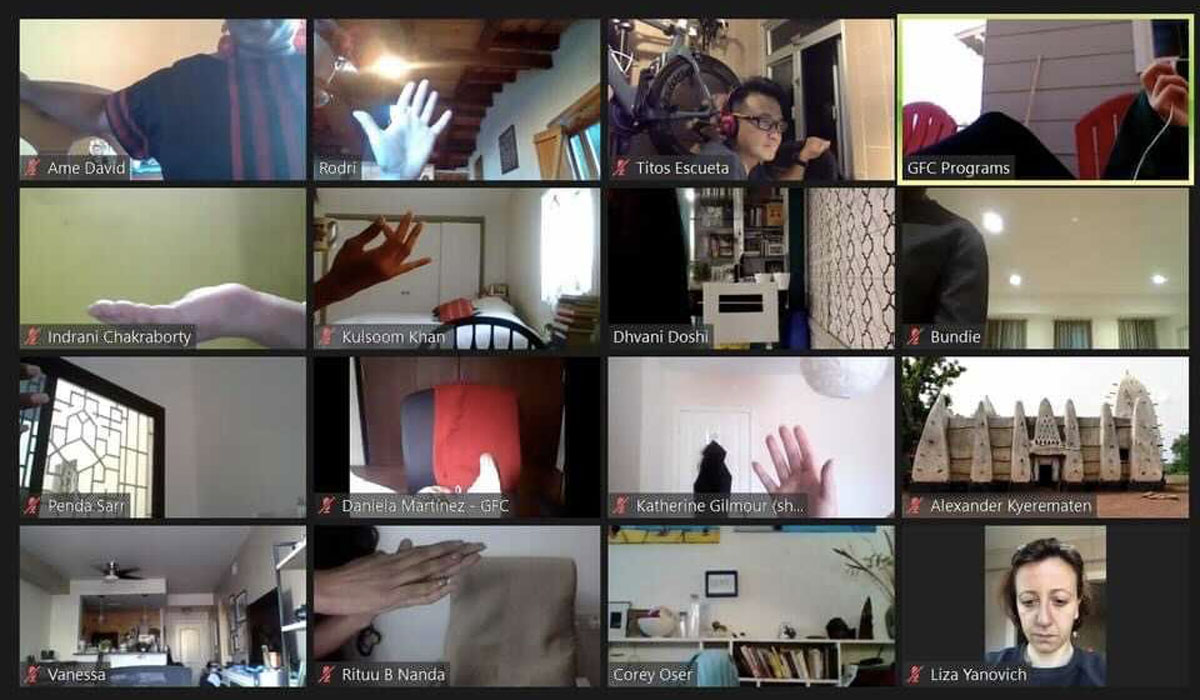
Reflect
Creating space to step back from what sometimes feels like a frenetic churn of daily pressures and responsibilities, magnified during the pandemic, is essential for generating fresh perspectives and taking stock of how the work is progressing. Creating spaces for reflection is a key part of our interaction with community-based partners because sometimes people need to give themselves permission to slow down. We integrate reflection into our work in different ways, such as pausing after new activities to consider what went well and what could have gone even better. We wanted to use this retreat time to go even deeper.
We shared an invitation to reach back into our childhood memories and dreams for a reflection exercise. It is easy to forget that organizations are shaped by the histories, values, and dreams of those who inhabit them, and are not amorphous entities. We settled on an activity to help us tap into these memories and dreams and connect with our younger selves. Before the retreat, each member of our team shared an image with a short narrative in response to the question: “What did you dream about growing up?” One of our colleagues compiled these reflections in a virtual gallery in Google Slides, which we viewed in small groups and discussed. Despite our diverse backgrounds, we found common themes such as a love of books and curiosity about the world, and we could all see our childhood dreams reflected in our current situations.
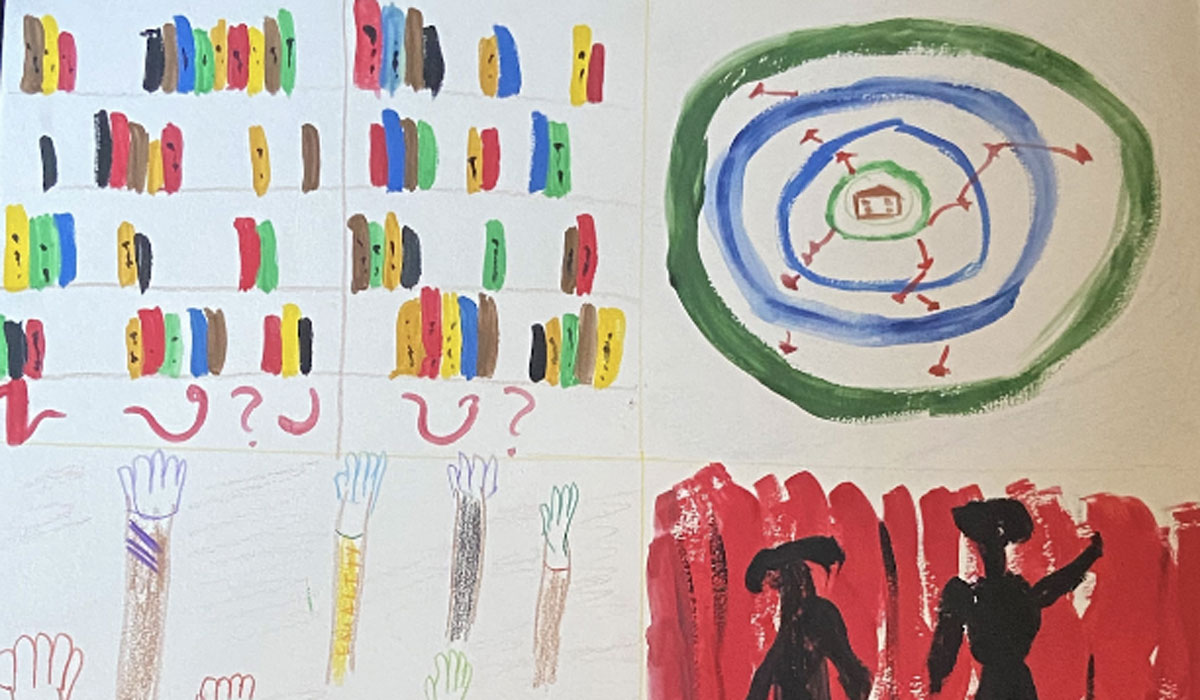
Connect
A few months before the retreat, we ran a poll during one of our team meetings with three questions including: “Do you feel a sense of belonging on the Programs team?” We asked the same question after the retreat and saw a nearly 20% increase in positive responses. As we noticed during our childhood dream exercise, a sense of belonging is something that all of us crave throughout our lives. Belonging is central to achieving the wellbeing that we seek to cultivate in all aspects of our lives, including our workplaces. Deepening our connections with each other so we see more of our personalities, passions, and struggles as we show up in the work realm is key to creating spaces of community. It is also a core thread running through the work of many of our partners as they foster a sense of identity and belonging in the young people they serve.
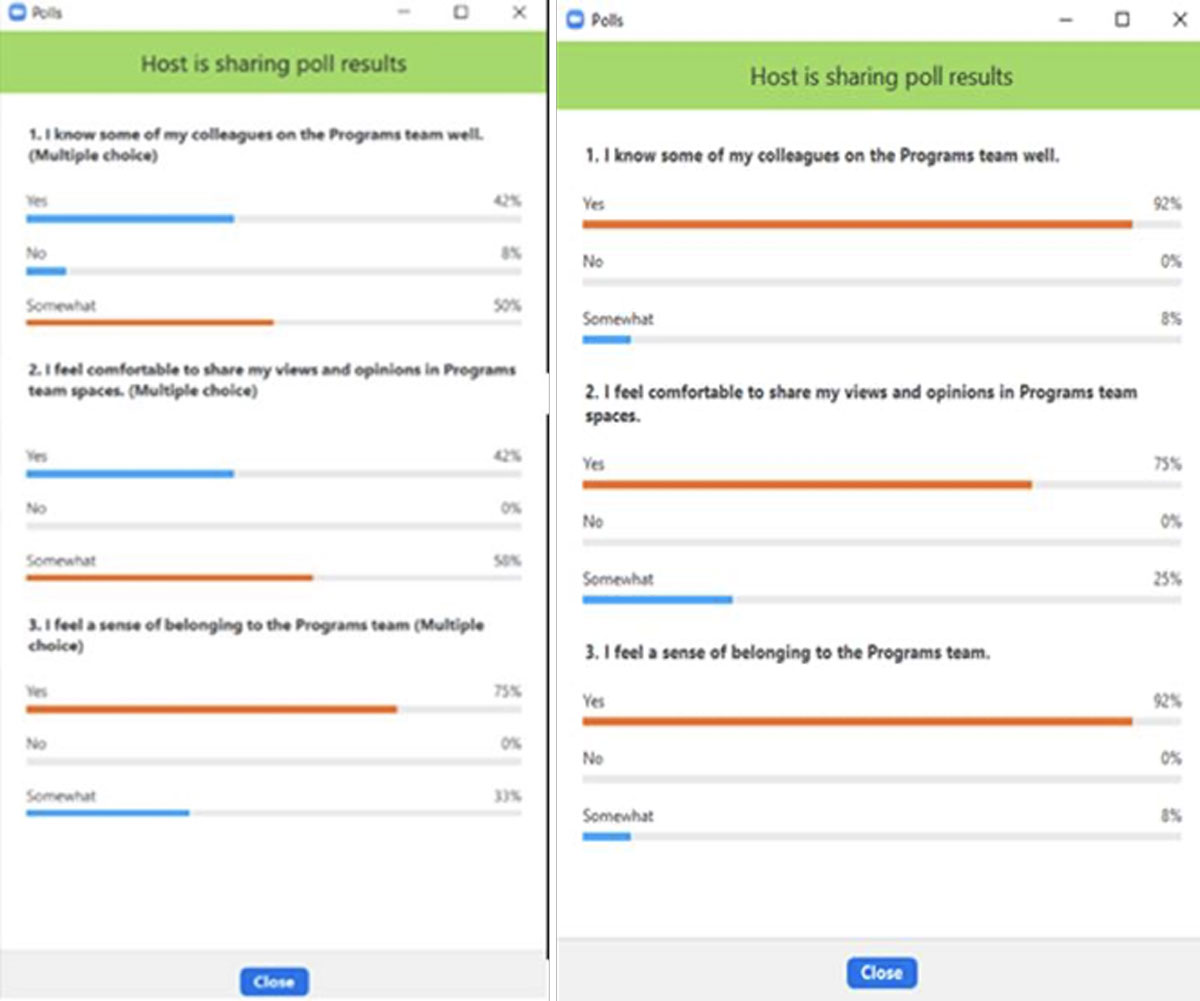
Throughout the week, we used creative expression to soften inhibitions and spark connections. In an environment in which boundaries often limit the ways we communicate and our perceptions of what constitute serious and valid modes of expression, stretching these limits can lead to new possibilities. As Peggy Taylor and Charlie Murphy write in Catch the Fire: “Through our work with adults in training programs and organizations, we find they are looking for the same thing as youth – a deeper connection with themselves and each other and greater access to creative power.”
We tapped into this creative spirit while focusing on the theme of partnership, which is core to the weaving and strengthening of relationships that give meaning to our work at GFC. The retreat planning group asked everyone on the team to consider which values are reflected in their understanding of partnership and challenged them to express their answers creatively in small groups. After only 40 minutes, a short play, a poem, a kitchenware-inspired music ensemble, and a photo collage emerged. Just getting out of our usual modes of operating opened our minds in new ways.
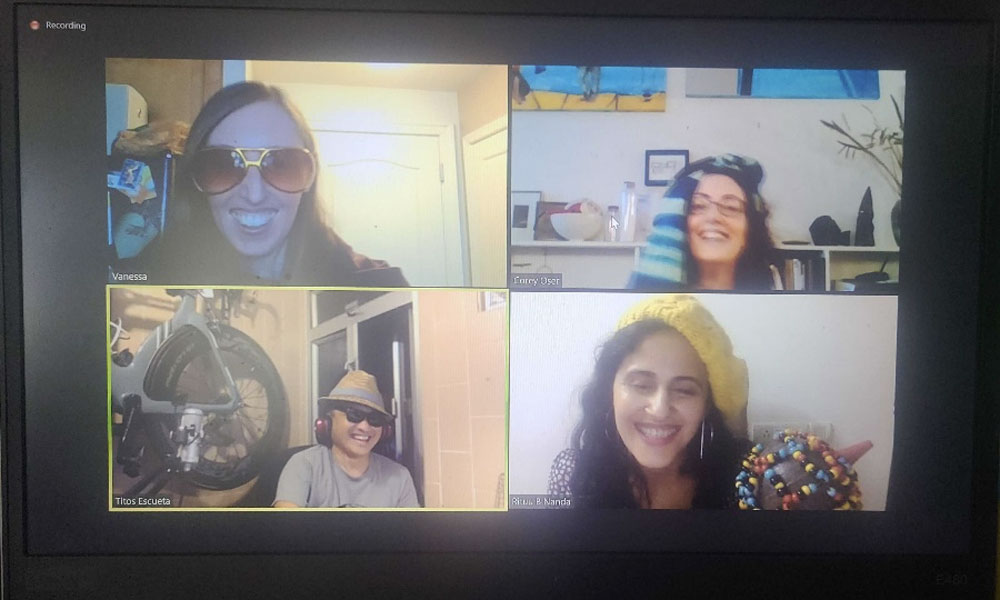
We ended our retreat with an “untalent” show, named as such to challenge the notion that one has to be experienced or accomplished in an area to express themselves creatively. A diverse range of funny and heartfelt offerings – from a knitting display to found poetry from adolescent years – surprised and inspired our little group.
We also sprinkled in a few informal ways for our wider GFC team to be in community throughout the week outside of our retreat, including a yoga class, a Russian blini cooking demonstration, and a wine tasting, which fostered connection in new ways.
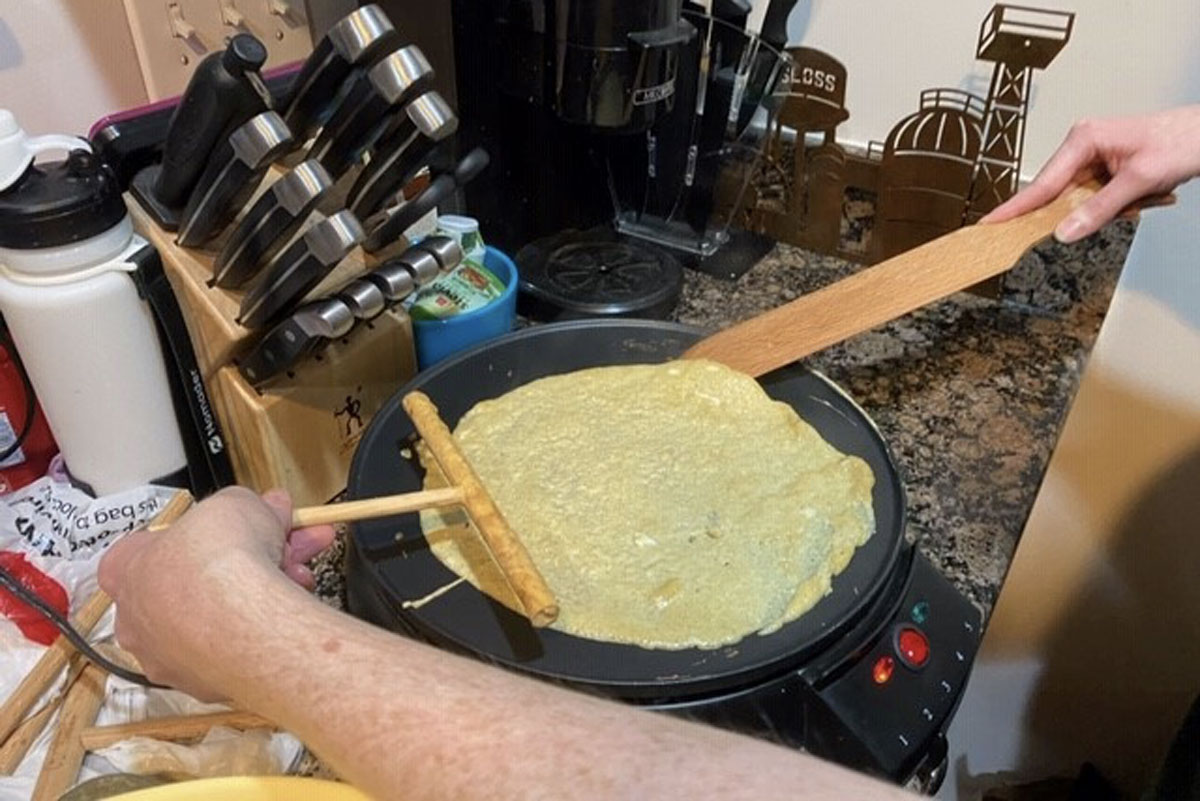
Dream
One of the most poignant ideas that emerged during the week was the acknowledgement that children have the right to dream, but that this is often lost in the crush of social problems that seem to narrow their possibilities in life. We reflected on how sparking the imagination to conjure up what might not yet exist – or what writer Charles Eisenstein calls “the more beautiful world our hearts know is possible” – is a key tool to envisioning solutions to new problems as well as new systems and structures. We recognized that what people refer to as dreams are often plans in disguise.
We pulled the dreaming thread through the week to end with a “dreaming tree” exercise in which we considered our dreams around the partnerships that make up the fabric of our work. Emerging themes around relationships formed the leaves of our “tree of dreams” – the essential elements of the world we want to create, including shifting power, the resistance inherent in joy, and wellbeing and self-care.
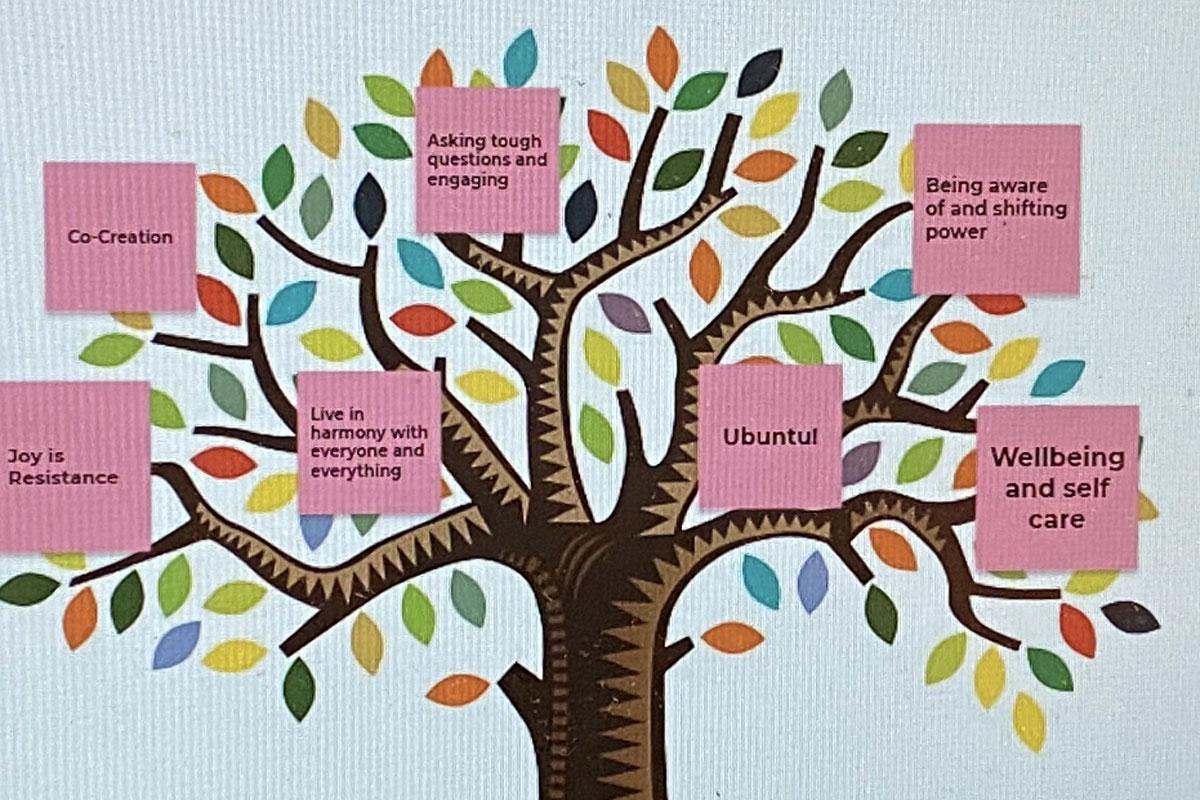
We also entered a dream world by writing a children’s story together that honored GFC’s early roots in children’s book publishing while telling the story of the team today. On a Google Jamboard, we responded to questions like: What were the smells and sounds around you as a child? How has working with social issues changed you? Think back to your childhood dreams…what does your inner child want to say to children around the world?
Two of our colleagues collaborated to weave our collective responses to these and other questions into a poem we will share with our partners. Here is an excerpt:
“Life is just that!
My friend, can’t you see?
A journey, a road, the sun, and the sea
To have little fear, to dance, and be free,
To nurture the love, for you, and for me.”
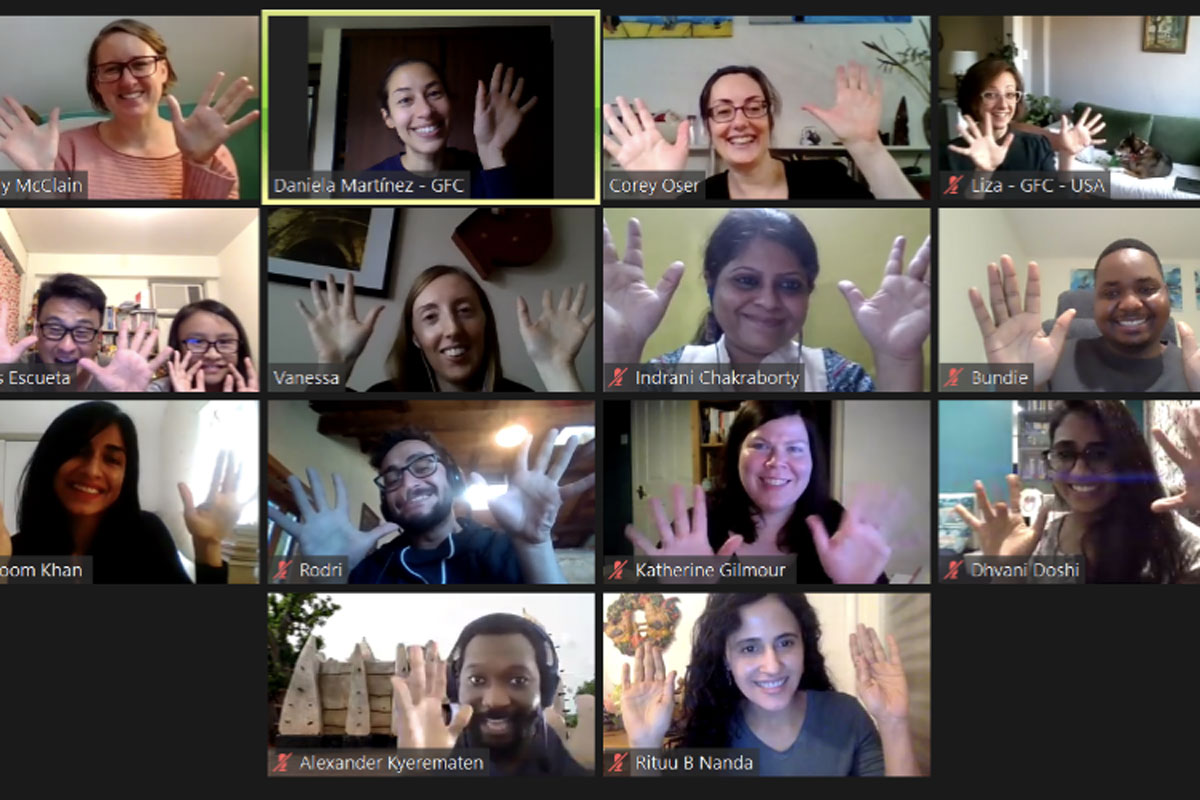
Putting it all together, a few learnings emerged from our retreat week:
- Not business as usual – Just as in person retreats strive to make way for a different cadence and interaction, you can reduce Zoom fatigue by engaging people on the values and principles of the work instead of using the space for long planning sessions. Planning can happen in dedicated spaces when needed, but reserve virtual retreats for more expansive ways to vision and connect.
- Cultivate joy – Joy can be a radical release from the expectations that what adults do at work must always feel serious. Creative expression through fun and play can unleash new ideas and visions. Experiment with drawing, music, theater, and movement. Tools like Jamboard or Mural can help with documentation.
- Get outside of the box – There is no reason for people to stay glued to their screens for all activities. It is easy to forget that people have bodies. Try incorporating movement and small group work that involves writing, drawing, and using the space around people. Adding some reflective activities outside of the retreat, such as journaling, can supplement the live sessions.
- Just the right length – We found that two-and-a-half hours with varied activities was about the maximum amount of time needed to engage our team online. We had four days like this with a break after the first two. Some staff might prefer spreading sessions across a few weeks, but we found that compressing them into a week created a comfortably intense experience. It is ideal if teams can reduce the volume of meetings and work outside the retreat.
- Facilitating in teams – Once we settled on an overall approach for the retreat and a rough outline, our core seven-person retreat planning team facilitated the activities each day in pairs or groups of three. This brought different styles into the week through a shared leadership approach. We met for a short reflection after each session.
- Connection IS the work – It is helpful to have a guiding theme and enough activities to engage people while remembering that, especially in the virtual space, the chance to connect, create, and dream together is one of the most important objectives you can achieve.
Check out our retreat playlist!
